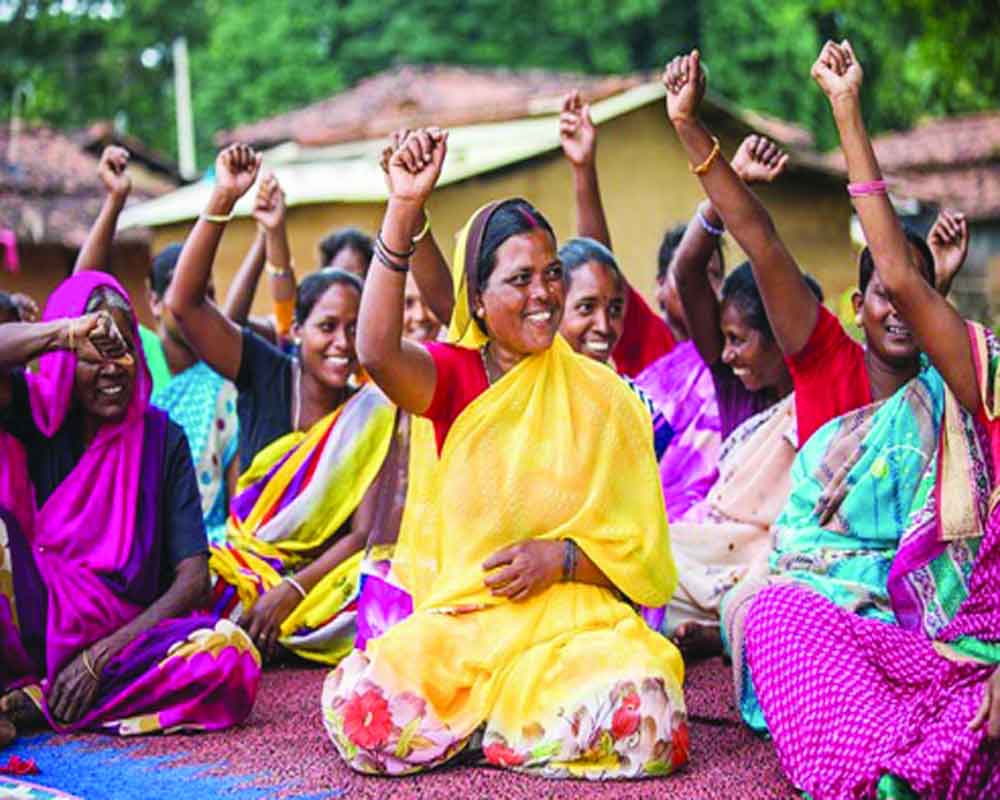Despite its success in empowering many women, this scheme’s benefits are still not fully accessible to all in the region
In remote villages of Jammu and Kashmir, a silent revolution is underway as these regions are witnessing women coming out of their houses to explore the avenues of self-employment through the ‘Umeed Scheme’ - Jammu and Kashmir State Rural Livelihood Mission (JKRLM). This transformative initiative aims to reach out to 66% of the rural population across the erstwhile 125 blocks, linking them to sustainable livelihood opportunities and nurturing them till they come out of poverty and enjoy a decent quality of life.
In December last year, Mission Director JKRLM, Indu Kanwal Chib, while sharing the JKRLM Vision 2024-30 informed that JKRLM has successfully federated 725,000 women and formed 87,000 self-help groups (SHGs) across the Union Territory of J&K. These SHGs are working in various areas such as livelihood, financial inclusion, gender and social inclusion and other related fields. However, certain rural pockets remain unaware of this significant scheme, lacking comprehensive knowledge to capitalise on its benefits. One such area is Baila village in Mandi Tehsil of the border district Poonch, which is located approximately 230 kilometres from Jammu city.
Although the scheme has been operational in the nearby Mandi tehsil since 2016, its reach in Baila village remains limited. When asked about the ‘Umeed Scheme’, the response from the women of this remote village was a unanimous lack of awareness. When they were informed about the benefits of the scheme, they expressed eagerness to understand its workings, underscoring its importance for including women in the workforce and towards their economic freedom.
In this context, Matina Akhtar, an 18-year-old resident of Baila, shared her perspective: “Despite living just two kilometres away from Mandi, we remain unaware of this scheme. There is this wide gap between secluded corners of our country and the development schemes. This gap leaves us, women from remote areas, bereft of its advantages. We only learn about it when the scheme is on the verge of closure. Our remoteness is the reason why we haven’t received any information about this scheme. How are we supposed to engage with it if we’re in the dark?”
“When I needed funds for my grocery store, I was short on cash. So, I resorted to selling some wood from my house to procure materials. Had I known about this scheme earlier, I wouldn’t have sold those timbers,” lamented 37-year-old Farida Akhtar from the same village.
When asked “If they have awareness about any scheme?” resident Zareena Akhtar, aged 23, responded that within their community, the only scheme recognised is the Anganwadi Scheme (ICDS), highlighting a significant gap in knowledge and accessibility to Governmental initiatives beyond this singular program.
There is also a lot of fear among the people of the village as well - both women and men. They have the fear of failure - what if they will not succeed in their endeavour? Salma Akhtar, 19, from Baila, confirms the notion. She expressed fears about potential repercussions and uncertainties associated with loan acquisition under the scheme.
There is a need to dispel the apprehensions lingering in the hearts of these women and endeavour to convey to them that this scheme is not a threat, but rather a boon. They need to be assured that this initiative can usher positive transformations into their lives. They must be made aware that this scheme is tailored specifically for women and designed to work towards their financial freedom.
According to Naima Akhtar, the Cluster Head of the Umeed Scheme in Mandi Tehsil, the Government has allocated decent funding under this scheme for women to benefit from it. “I urge other women who may be unaware of this scheme to join us. Numerous individuals, both men and women, in the Mandi Loren area have secured rewarding opportunities through this Scheme. They are sustaining their households without needing to engage in manual labor.
Regrettably, the women of Baila remain oblivious to this exceptional program. Meanwhile, women from other regions are harnessing its benefits, propelling themselves up the ladder of progress. They are not only achieving financial independence but also cultivating self-reliance. This brings hope for a transformative change in the lives of the women of Baila.”
(The author is grassroots writer from Poonch, J&K; views are personal. Charkha Features)


























